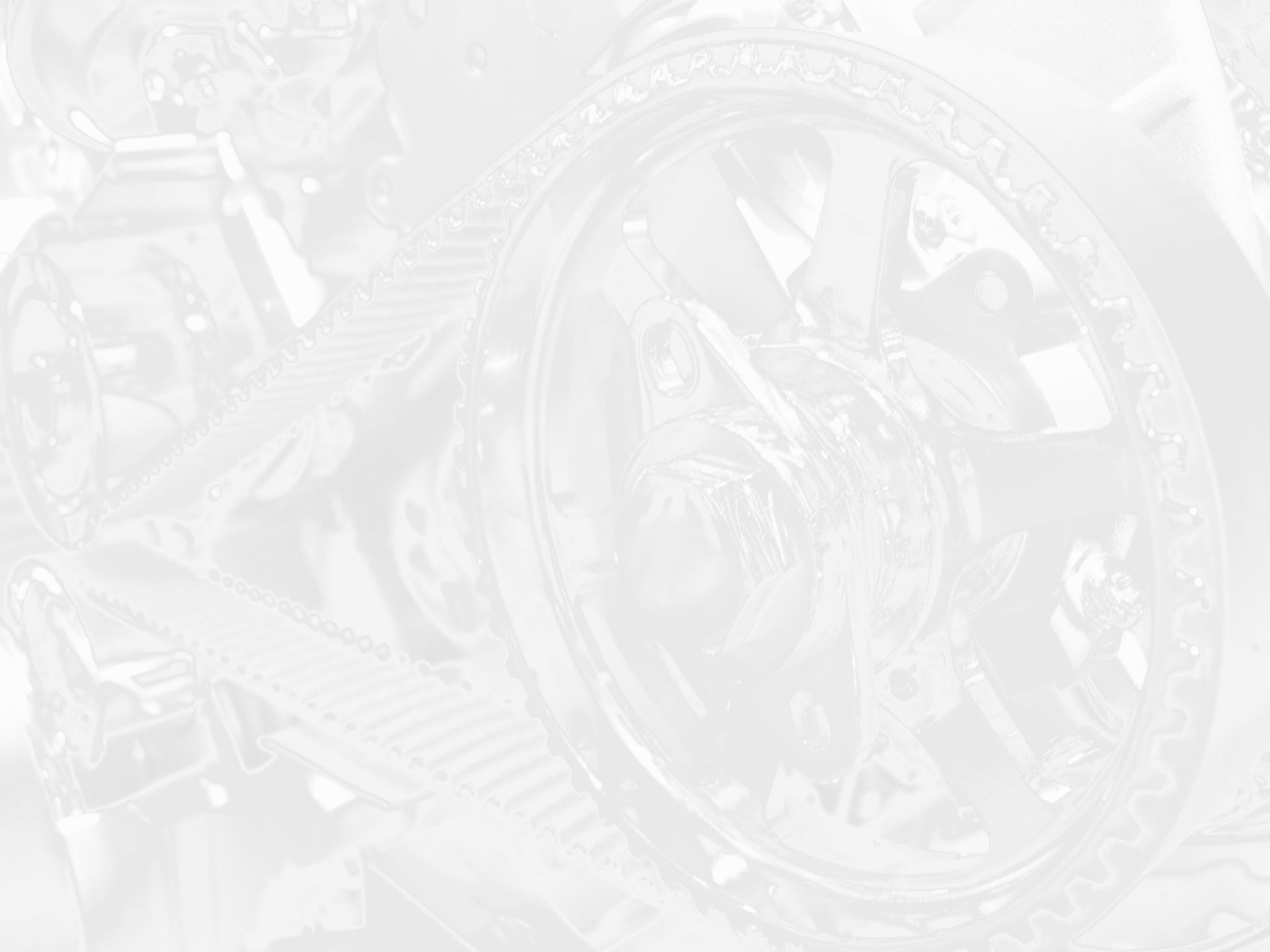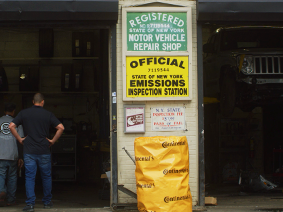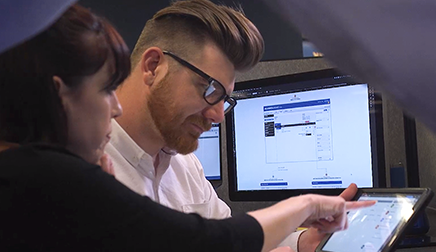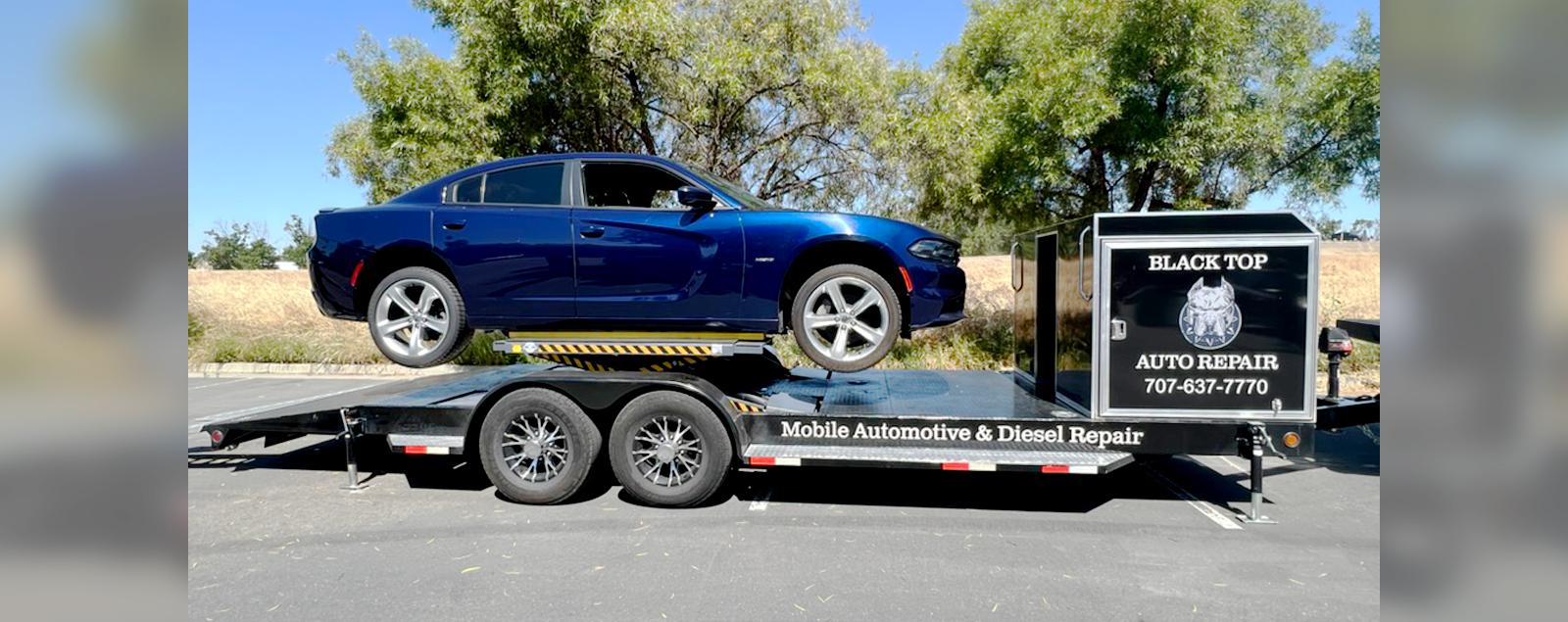
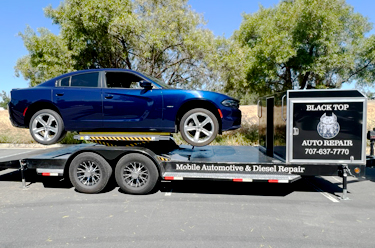
Typically, when we feature an auto repair shop, it almost always includes a structure with ample workspace, air-tools, lifts and a waiting room. Black Top Auto Repair has set this standard on its ear with an exceptional mobile approach. The concept of ‘mobile mechanic’ has a long history with varied connotations, and owner/operator Dylan Loebel-Begelman understands this perception. This is why his mobile business incorporates a custom-built trailer, outfitted with a lift, air compressor, tool storage, waste tanks, leveling jacks and internet hotspot.
Company at a Glance
Location: Northern CA
Type: Mobile Auto Repair
Facility Employees: 1
In Business Since: 2022
Contact Information: (707) 637‑7770
“In some ways, we judge books by their covers, even though we’re not supposed to, and so what better way to impress the customer than with a truly incredible piece of equipment. I wanted the customer to expect the same quality of work that you would expect going into the nicest repair shop with the most pristine floors and feel confident in the work. More importantly (the trailer) helps me save the customer time.”
Dylan didn’t start his career as a mobile mechanic. For 13 years, he worked at a BMW dealership and was always focused on taking care of the customer. In 2022, he left the dealership and entered a partnership with an independent European automotive repair shop in San Ramon, California. Unfortunately, things did not work out. As he was contemplating his next move, he received some unexpected inspiration.
“One day my girlfriend found a photo (of the trailer) on Facebook of all things, and I did some research and found Mobile Lift Concepts down in Southern California, they fabricate these custom trailers tailored to their customer’s needs. I said to myself, if I’m going to do a mobile business, then I want to do it right.”
I wanted the customer to expect the same quality of work that you would expect going into the nicest repair shop with the most pristine floors and feel confident in the work. More importantly (the trailer) helps me save the customer time.
As well thought-out as the trailer is, the business model needed to be equally efficient and nimble. Living in a rural area, Dylan was able to obtain a business license so he could run his business from his place of residence. Because of this, he was able to lower his overhead and overall labor rate. He could even afford to lower his mark-up on parts. But more than just lowering his prices, he hoped that by bringing his business to the customer, he could make a truly impactful difference in the customer’s experience.
“What is the biggest problem in the automotive industry? Why are dealerships pushing their oil changes out further, why don’t people want to go to the automotive dealers or shops? It is taking time out of their day.
They have to go drop their car off, but they have to get a ride or take an Uber to go anywhere. They have to go back to work but they have to leave work early to and go get their car before the shop closes. What people need is time and what this (trailer) does is allow for people to have more time. My goal was always not to make money. My goal was, I wanted to make sure people were taken care of. Because of that, I have more work than I know what to do with.”
An example of Dylan’s ideal customer was a man who works from a home office overlooking the street. When Dylan first arrived at the house, he received a text from the customer: ‘The keys are in the cup holder.’ He performed the agreed-upon maintenance, test-drove the vehicle, parked it back in the driveway and left the keys in the cup holder, just as he found them. He waved to the customer and emailed the invoice. Dylan received the payment online – and the customer never had to leave their home office.
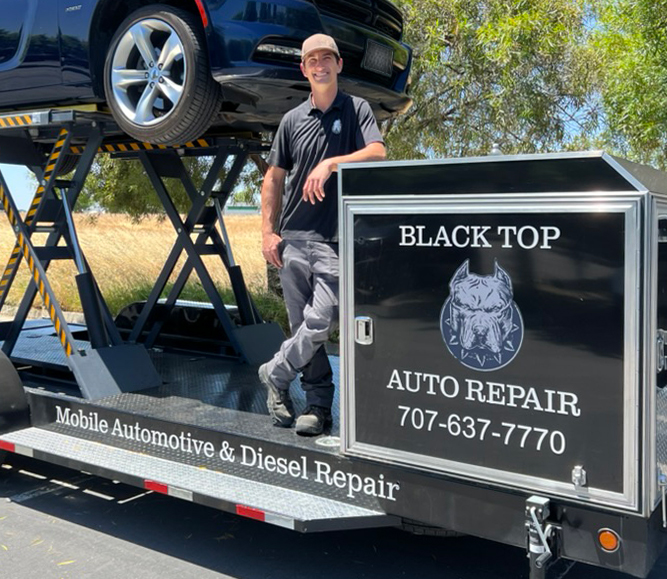
“The customer reached out to me later and said, ‘I want you to know that this is like the best thing since sliced bread!’”
It takes deliberate planning and clear communication to successfully run a mobile repair business. Dylan operates within a set travel radius, assigns appropriate travel fees, and is very deliberate in scheduling at least 3-4 jobs in the same area on the same day. If a customer needs him for a unique job outside of his planned route, they understand that they will pay a higher travel fee. More importantly, Dylan only travels to a customer when a clear commitment to the needed work has been established and online payment arrangements have been made.
“The thing is, I’m able to do oil changes and I’m able to do brakes. I’m able to do almost everything that’s needed for these cars. I’m able to show up to peoples’ work and just take their keys and say, ‘I’ll take care of it’ so they can keep doing what they’re doing.”
Once Dylan has the car on the trailer, he does a full inspection and prepares an itemized list of prioritized repairs and maintenance. This opens the door to future work and builds a reputation with his customers. This is important, especially in the mobile mechanic field, because there is always a competitor who is willing to work for less.
“I always like to say, ‘I’m not the most expensive, but I always use the best parts – OEM and OEM equivalent. Quality work isn’t cheap, and cheap work is not quality.”
If someone says ‘Hey I want you to put some aftermarket lights in…’ the first thing I do is go to ALLDATA. I’ll use either the OE or the interactive wiring diagrams, and I’ll choose a line where a fuse is – a good place to tie in that doesn’t interfere with any comm systems so it’s going to be safe and not going to burn the car down.
Quality parts are not the only thing that brings value to his customers; Dylan also relies on up-to-date OE repair information for his day-to-day operations. Dylan started using ALLDATA at his father’s high school (his father was an auto shop instructor) when he was 12 years old, and he’s used it ever since, “ALLDATA is what I’ve known, I have really been accustomed to it, so if it works, why change it?” Dylan accesses ALLDATA in two different ways: on his phone or his laptop. For a reliable internet connection, he uses a hotspot in his truck. He frequently looks up parts, labor times, specifications for fluids, torque specifications and repair procedures. He also applies it in some other pragmatic ways.
“If someone says ‘Hey I want you to put some aftermarket lights in…’ the first thing I do is go to ALLDATA. I’ll use either the OE or the interactive wiring diagrams, and I’ll choose a line where a fuse is – a good place to tie in that doesn’t interfere with any comm systems so it’s going to be safe and not going to burn the car down.”
Dylan’s philosophy and attitude stand out in an industry that can be focused on car counts and productivity.
“It’s not for me to make money. It’s not for me to grow my business into the biggest corporation out there. I enjoy doing this. I enjoy helping people, I enjoy meeting people and with this (business) I’m able to do that.”
If you would like to see a demo of ALLDATA Diagnostics, our professional-level scan tool that has the power of ALLDATA builtin and offers full-system, exportable pre- and post-scans, learn more.
If you would like to read more articles like this one please subscribe to ALLDATA News.
